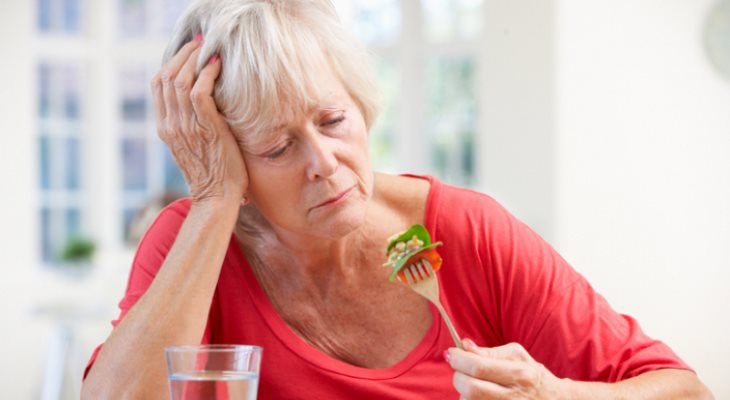
Malnutrition is the term used to describe when someone is not getting a balanced diet, either by lacking, taking excess of, or taking incorrect proportions of vital nutrients. It affects people of all ages and is prevalent in less economically developed countries, but it is also known to affect children, the elderly, and people who have suffered from certain illnesses. While malnutrition can be associated with someone being ‘over-nourished’, someone suffering malnutrition is often undernourished.
[ad#top]
Malnutrition in the elderly is normally caused by one or more of the following things:
- The inability to prepare balanced meals, or food not being available to the person if they are unable to go out for themselves or have a low income resulting in them not being able to afford enough food.
- Problems eating, which can be caused by stress, or conditions such as dementia affecting the memory, and dysphagia which is often a symptom of another illness, and means ‘difficulty in swallowing’.
- A lack of appetite or aversions to certain foods or food groups.
- Long term illness such as cancer or issues with the digestive system.
- Impaired absorption from medical issues arising in the intestines, liver or pancreas.
Sometimes, an event in life, such as the death of a loved one, or a traumatic experience can affect someone, causing them to not take as much care over their dietary intake as they normally should.
One of the most obvious symptoms of malnutrition is unplanned or unexpected weight loss. By checking out one’s body mass index, it is possible to calculate whether the weight loss is healthy. However, if it continues, or BMI drops below the safe level, this can be a major sign that someone is suffering from malnutrition.
[ad#infeed]
Other symptoms include depression, persistent diarrhea, nails, hair and skin becoming brittle or dry, irritability, dizziness or a light-headed feeling, and muscle weakness.
Suffering from malnutrition affects every system in the body, and can make it difficult to heal or recover from illness. Elderly people may be less likely to realize that they suffer from malnutrition, putting symptoms down to something else, or assuming that they are eating a balanced diet.
If you have concerns over whether you or someone you know is suffering from malnutrition, there are a few things you can do to help them. Try and help them get to the shops to buy ingredients for a balanced meal, particularly if they enjoy cooking.
Have a look online or read a book to find out what proportions of nutrients should be consumed each day, as well as making sure to eat the five portions of fruit and vegetables that are recommended for daily consumption by the government.
If simply trying to improve the diet does not help, or if the malnutrition is caused by an underlying condition, a doctor may make a referral to a dietician who can review things more thoroughly, as well as for deciding as to whether care can be managed purely by a better diet, or if you require advanced medical nutrition to supplement the diet already in place.
Malnutrition costs the NHS around £7.3 billion per year, as patients require more care, and are more likely to be hospitalized by illnesses due to increased recovery times.
If caring for an elderly loved one, being vigilant to their diet can help us to notice when things change to ensure they get the best possible support towards their improvement and successful recovery.
[ad#matched]

Myself Aditya and I am from Mumbai, India. As an intern, I joined the local news agency in Mumbai named “The Mumbai News”. Now I am working with various News Agencies and I provide them reports from Mumbai and other parts of India.















